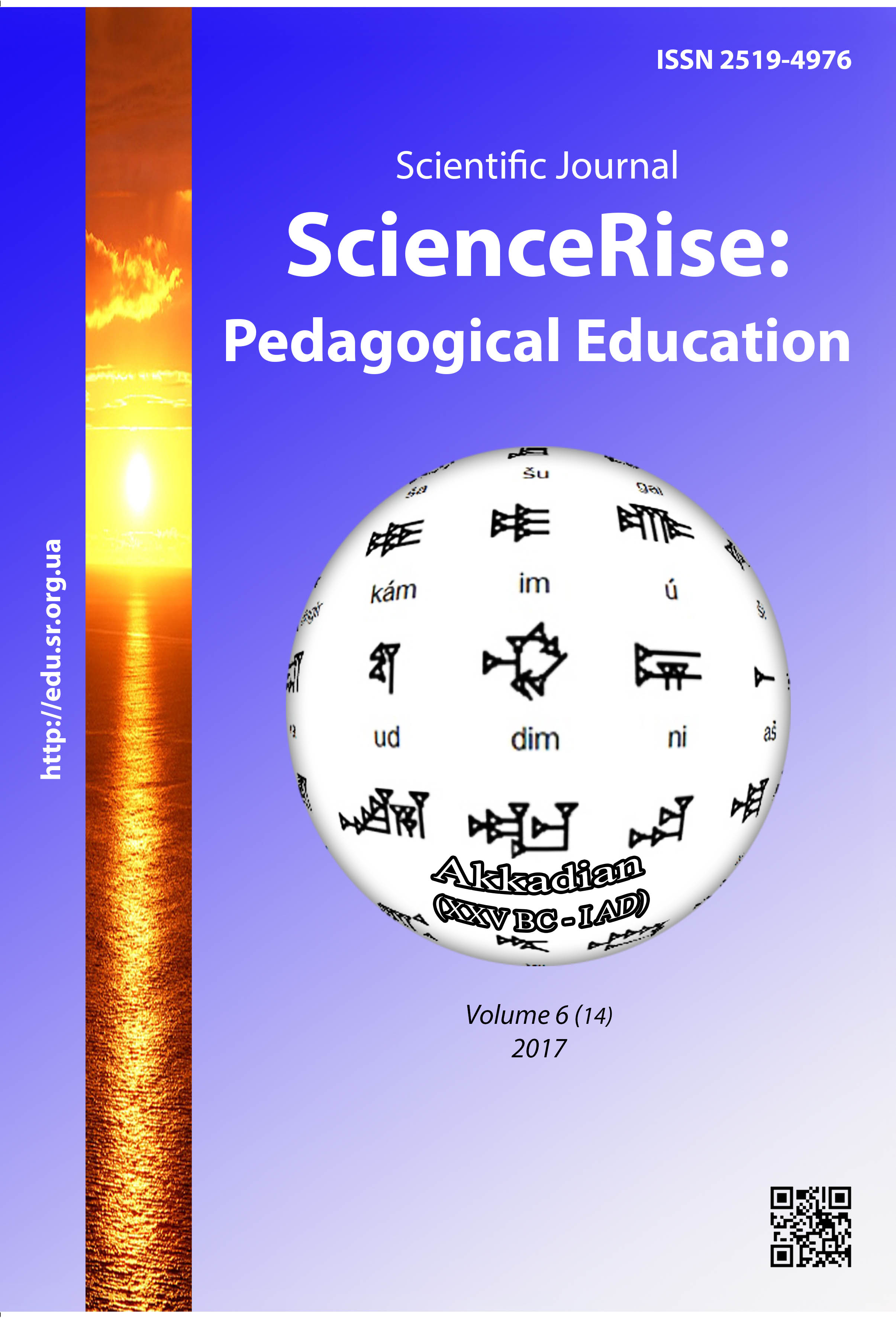Formation of future doctors' research competence on the basis of their cognitive activity
DOI:
https://doi.org/10.15587/2519-4984.2017.105520Keywords:
research competence, teaching technologies, cognitive activity, project method, group technologyAbstract
Organization of cognitive activity of medical students at different levels of research work is described. It is contributed to the formation of future doctors’ research competence at various levels of research. Such work includes the following components:
- search for scientific information (tasks aimed at recording and correlating information data, determination of their consistency and inconsistency, correlation of the stages of scientific research, bringing each conclusion, finding of direct and indirect links and justification of the conclusions, checking the effectiveness of the search, etc.);
- Discussion of the patient problem during consultations (technologies that provide for work in groups);
- writing of abstracts and articles and other scientific works as a result of their participation in the work of problem groups, scientific groups, problem student laboratories, work on projects.
The effectiveness of various training technologies in the process of organizing such activities, in particular, work in small groups and the project method is actively used in the study of the disciplines of the natural-science cycle
References
- Makarenko, O. V. (2017). Metodyka formuvannia doslidnytskoi kompetentnosti maibutnikh likariv u protsesi vyvchennia pryrodnychykh dystsyplin [Methodology of forming the research competence of future physicians in the process of studying natural sciences]. Poltava: Shevchenko R. V., 104.
- Makarenko, K., Makarenko, O. (2014). Suchasni tekhnolohii navchannia fizyky u formuvanni tvorchoi osobystosti [Modern technologies of teaching physics in the formation of a creative person]. Scientific notes. Series: Problems of Methodology of Physical-Mathematical and Technological Education, 5 (3), 141–144.
- Makarenko, V. I., Makarenko, O. V., Makarenko, K. S. (2015). Formuvannia tvorchoi kompetentnosti maibutnikh likariv na zaniattiakh z biofizyky [Formation of creative competence of future physicians in biophysics classes]. Pedagogical sciences: theory, history, innovative technologies, 3 (47), 397–405.
- Kachmar, V. O. (2009). Stan rozvytku medychnoi informatyky v Ukraini [The state of development of medical informatics in Ukraine]. Medicine of transport of Ukraine, 4, 95–99.
- Olar, O. I., Mykytiuk, O. Iu., Fediv, V. I., Ivanchuk, M. A., Hutsul, O. V. (2013). Innovatsiini tekhnolohii u medytsyni: stan i perspektyvy [Innovative Technologies in Medicine: Condition and Prospects]. Bukovynian Medical Journal, 17 (2), 155–160.
- Zhuravel, V. I., Zaporozhan, V. N. (2000). Menedzhment v sisteme meditsinskoy pomoschi [Management in the system of medical care]. 432.
- Trofimov, Yu. L. (Ed.) (2000). Psykholohiia [Psychology]. – Kyiv: Lybid, 516.
- Orban-Lembryk, L. E. (2004). Sotsialna psykholohiia [Social Psychology]. Kyiv: Lybid, 576.
- Makarenko, O. V. (2014). Ratsionalne poiednannia hrupovoi formy navchannia z problemnym u protsesi vyvchennia biofizyky [A rational combination of group learning with problem in the study of biophysics]. Actual problems of modern medicine: Bulletin of the Ukrainian Medical Stomatological Academy, 14 (2 (46)), 171–175.
- Makarenko, V. I., Makarenko, O. V., Makarenko, K. S., Silkova, O. V. (2014). Metod poshukovo-doslidnytskykh proektiv yak zasib formuvannia naukovo-doslidnytskykh umin studentiv [Search and Research Projects Method as a Source of Scientific and Research Skills of Students]. Higher education of Ukraine. Thematic issue "Pedagogics of Higher School: Methodology, Theory, Technology", 3 (3), 82–93.
- Moskaliuk, O. I. (2010). Zahalni pidkhody do orhanizatsii samostiinoi roboty studentiv [General approaches to organization of independent work of students]. Scientific notes of M. Kotsyubinsky Vinnitsa State Pedagogical University. Series: Pedagogy and Psychology, 31, 96–100.
Downloads
Published
How to Cite
Issue
Section
License
Copyright (c) 2017 Alexander Makarenko

This work is licensed under a Creative Commons Attribution 4.0 International License.
Our journal abides by the Creative Commons CC BY copyright rights and permissions for open access journals.
Authors, who are published in this journal, agree to the following conditions:
1. The authors reserve the right to authorship of the work and pass the first publication right of this work to the journal under the terms of a Creative Commons CC BY, which allows others to freely distribute the published research with the obligatory reference to the authors of the original work and the first publication of the work in this journal.
2. The authors have the right to conclude separate supplement agreements that relate to non-exclusive work distribution in the form in which it has been published by the journal (for example, to upload the work to the online storage of the journal or publish it as part of a monograph), provided that the reference to the first publication of the work in this journal is included.







